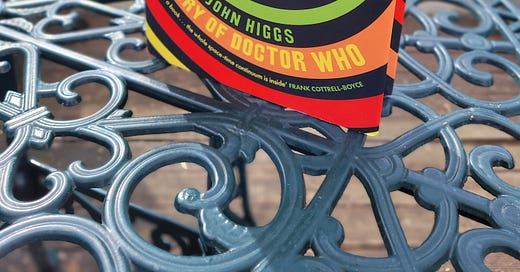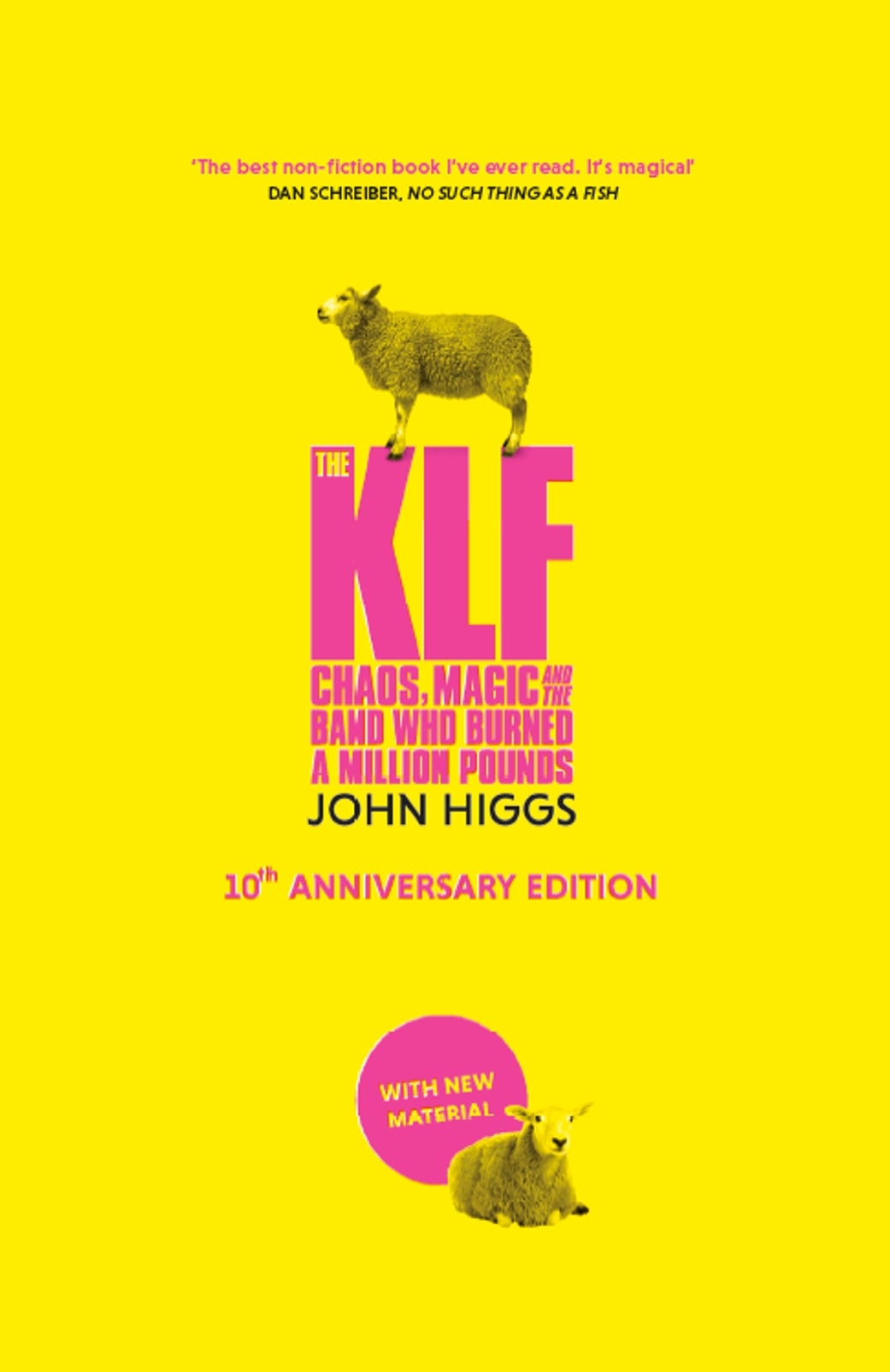Thanks to everyone who’s bought, read or listened to Exterminate/Regenerate: The Story of Doctor Who since it came out three weeks ago. Your reactions have been very heartening. I’ve been travelling the country talking about it and it has been great to meet so many of you. Tonight I’m in Wells-Next-the-Sea in Norfolk, and on Sunday I’ll be in Belfast. Details of all these events and others are here - note that the Liverpool event with David Keenan has now been rescheduled for May 20th, more on that here.
I’ve also been talking about Doctor Who on a number of podcasts - including the mighty Radio Free Skaro! It was a particular delight to talk to Toby Hadoke - and force him to rewatch the episode Amy’s Choice. Talking to Josh Bernhard at TARDIS Rubbish was so much fun that I’ve agreed to go back, once this series has ended, to try and process it all. And on top of all that, my conversation with Andrew Harrison at Walthamstow Trades Hall was recorded for The Bunker and you can hear that here.
If you’re after a signed first edition, then my local independent bookshop City Books has a pile - and they ship internationally - as does my local indie record store Resident Records. Either of those will sort you out.
I really appreciate everyone who has bought a copy, talked about it to friends or written a review on Amazon or elsewhere. All of that is hugely appreciated and makes a big difference - thank you! Thanks also to The Quietus for running an excerpt from the book, on the strange occult act Ben Wheatley performed in Peter Capaldi’s TARDIS, which you can find here.
Speaking of the Quietus, I also interviewed Mike Scott of the Waterboys about his extraordinary double concept album Life, Death and Dennis Hopper, which is well worth your attention. You can read that here.
KLF PAPERBACK
The KLF book is returning to paperback on July 17th (in the UK) - complete with all the extra footnotes from the 10th anniversary edition. Here’s a sneak peek at what it will look like:
Great to see that yellow again, isn’t it? There was talk about trying other colours but it was striking how weirdly horrified people were by the thought of this. Being a yellow book is part of its strange alchemy, and these are not things to mess with. This edition is available to pre-order now.
And, you never know, maybe there will be a new, as yet unannounced book coming before the end of the year? Like the Blake, Beatles and Doctor Who books, it would no doubt have connections to a KLF sample. It is simply not possible to write about anything else.
ELSEWHERE
Like many writers, I recently learned that pirated copies of all my books were used to train Meta’s LLM AI and, again like many writers, I’m looking forward to the class action lawsuit that must surely follow. But while the threat to many livelihoods from AI is very real, I don’t think that AI will be able to churn out the sort of books that I write.
The Doctor Who writer Jamie Mathieson explained the issue well. A good scene, he said, isn’t about what, on the surface, it seems to be about. It’s about what’s not being said, and why those things are not being said. It’s written with an understanding of what the watching audience is thinking. An AI, in contrast, is not thinking about the minds of the audience. It doesn’t know that an audience exists. It doesn’t know that it exists, come to that. It has no conscious awareness, and there is no reason to believe that it will ever acquire one – despite the faith-based proclamations of many who should know better.
You can see the way we project the illusion of sentience on AI in the words we use around it. The problem of AIs getting things wrong is described as an “hallucination”, for example. But it is not hallucinating, because that requires awareness. An AI is a mathematical model of neuron-like connections, not the thing that it is attempting to model – just like the map is not the territory, and the menu is not the meal. It is software brilliantly optimised to select suitable words - which it does to a satisfactory standard more often than not - but it does not know what words are or why they exist.
The work of writing a book is not the selection of suitable words. The work is the task of engaging another mind. It is a constant dance between understanding your subject and understanding how a future reader will react to it - a reader you can never know, but which you still have to intuit. AI can produce full length, grammatically accurate books, but they are not books in the sense that anyone could read them all the way through without losing interest. They are certainly not books that people will talk about and recommend, which is how books survive and make an impact.
This points to a larger problem with generative AI. As the Beat writer Brian Barritt said about paintings, “It’s never hard to know if a painting is real art, because if you never tire of looking at it, then it’s art.” Compare this to AI images or AI music. As technically impressive as these things are, has there ever been one which you’ve felt compelled to go back and revisit? They are simply forgotten the moment you scroll past. What’s missing is what should be central. They are to art what zombies are to people – sort of the right shape, but that’s about it.
And yes, not all images, text or music need to be worthy of revisiting. There are plenty of illustrations, background music or factual instructions where AI can deprive some poor creative soul of a job. There are plenty of scenarios where human artists can use AI as tools to help them create some larger vision, as well as actual artists who engage with the impact of AI. The consequences of AI affecting industries and creative practices will be immense and complicated. But the claim, which so many in the tech world seem to believe, that AI will take over the production of songs, films and books is worrying, because it illustrates the extent of the industry’s blind spot.
I grew up in a time when tech was exciting and, at times, almost magically. I watched the evolution of the internet and videogames. I saw how the imagination of tech people repeatedly created, as if out of nothing, things which improved the world – things like Wikipedia, email, or Google Maps. Yet those pioneers were eventually replaced by people pushing crap - NFTs, Facebook’s Metaverse, enshittification, online gambling, Web 3.0, crypto, doom scrolling, AI slop and its unforgiveable carbon footprint. None of these solve existing problems or make the world better. They are all tools intended to extract value from the wider world, making tech companies richer and the world worse. Even putting aside the harm caused by the tech world’s embrace of fascism, their descent from visionaries to scumbags is quite heartbreaking.
There has been concern lately about the addictive nature of Chatbots, especially among those who suffer from loneliness. I’m increasingly conscious of another problem, too. They seem to be dangerous for those with latent or undiagnosed mental health issues. The software does its best to tell its users what they want to hear, and this can speedrun a descent into paranoia or even schizophrenia.
It is troubling that tech companies remain blind to what AI is lacking. Even after over a decade of Elon Musk’s failed predictions about self driving cars, they still don’t seem to wonder what is missing or why the tech can’t do what they’ve promised. It is as if they created a virtual version of football, wonderfully accurate in terms of players, kits, sponsorship and fans, yet they don’t seem to realise that there needs to be a ball at the heart of it. I sometimes wonder if the tech world’s own use of the technology is what causes this blind spot - ChatGPT naturally assures them that AI is everything normal intelligence is. That is, after all, what they want to hear.
AND FINALLY
We probably need something a little cheerier to end on, so here’s some music. This Revolver-style Blake n’ Burroughs inspired love song from Freezer may please a few of you, I think.
Or if you are an old folky at heart, then try Midsummer Boulevard by Ben Edge - a song inspired by the Milton Keynes section in Watling Street. If I compiled every song that has been inspired by that book - well, I’d have an EP. But a good one!
If none of that is quite your thing, and you are struggling with the world under Trump’s ‘Like me or I’ll hurt you’ politics, it may be that a full hour of Mon Mothma losing it at her daughter’s wedding is the only sane response. In which case - see you on the Chandrilan dancefloor!
Until next time!
jhx







I did not know I needed an hour of Mon Mothma dancing 💃💃🙏
From years I read the KLF book before to sleep to remind that there is something interesting beyond the veil of reality.